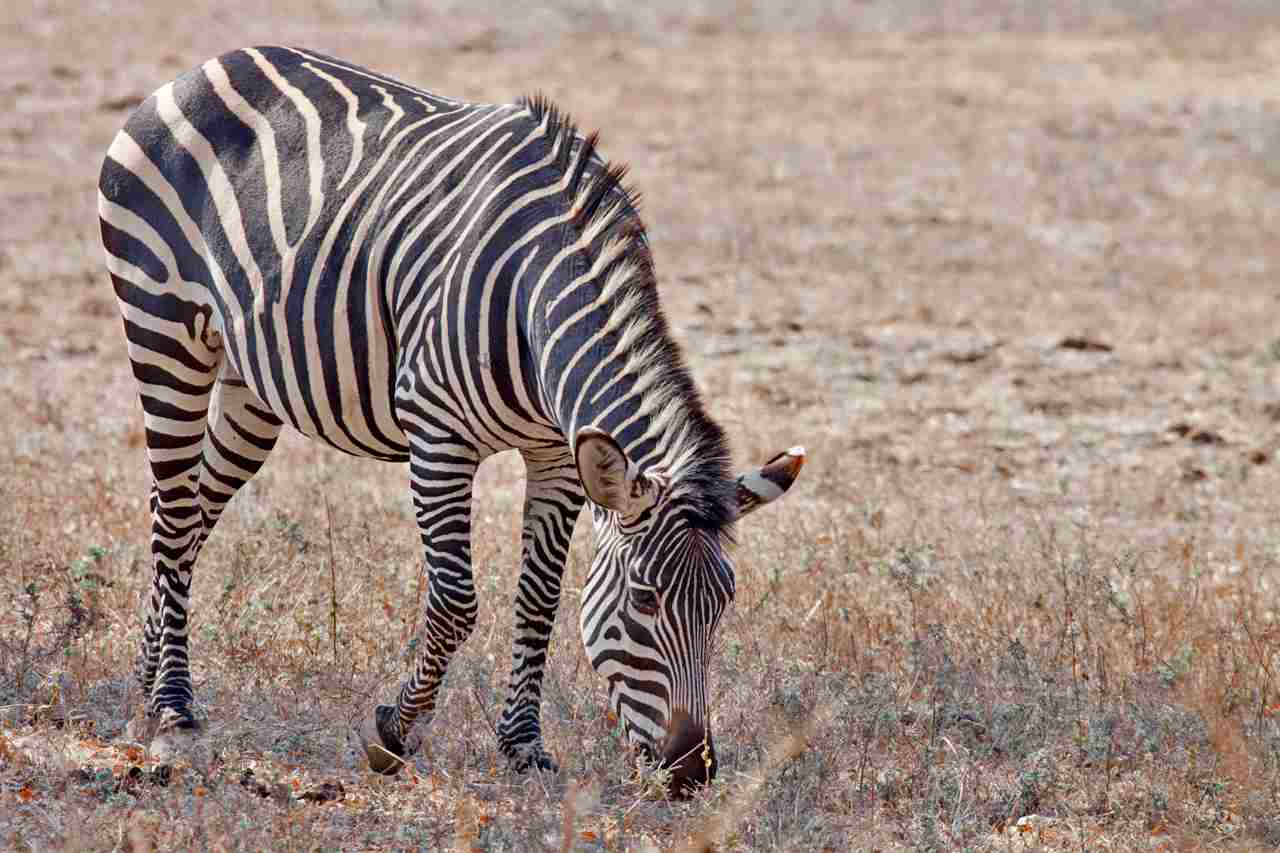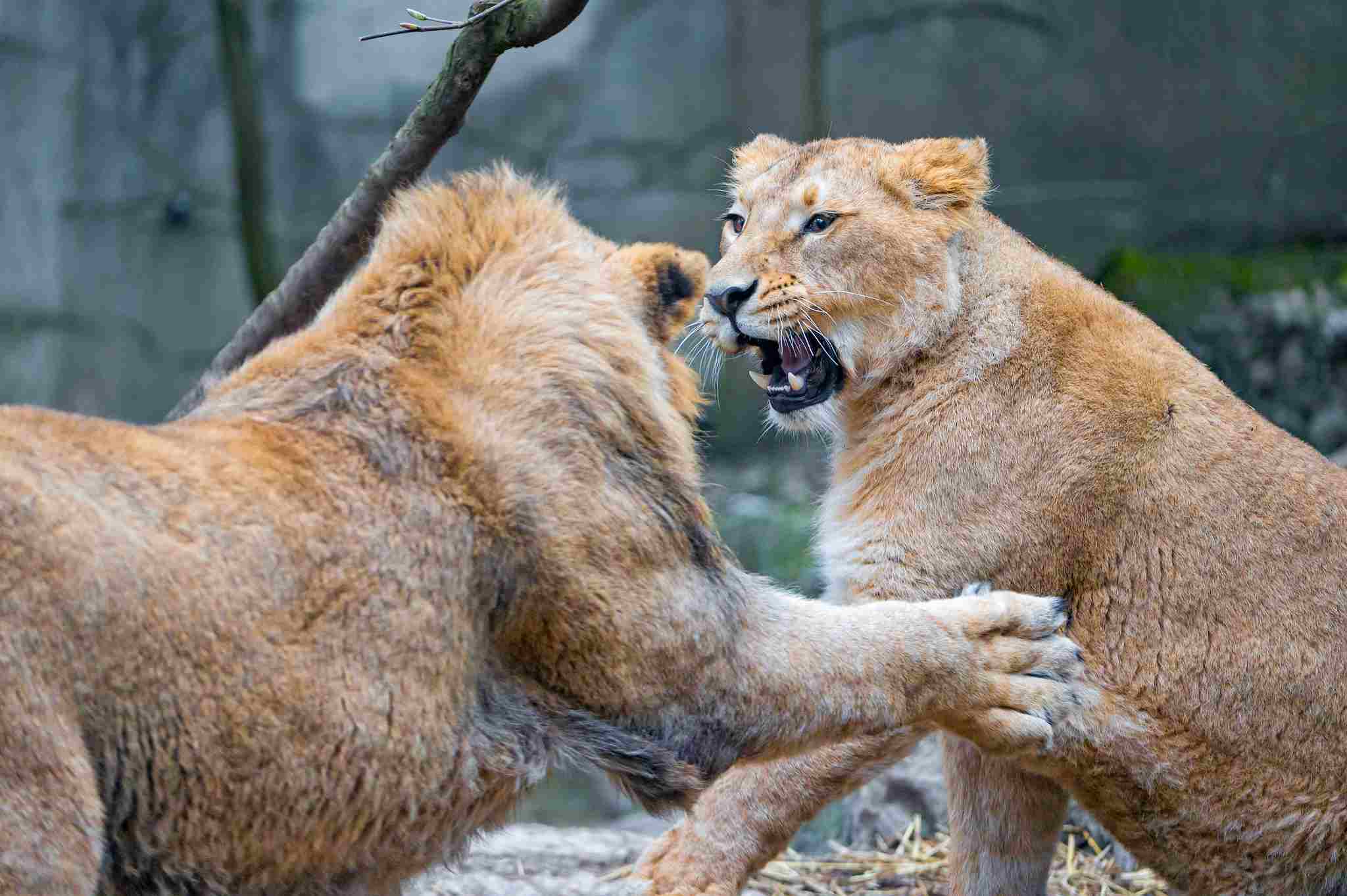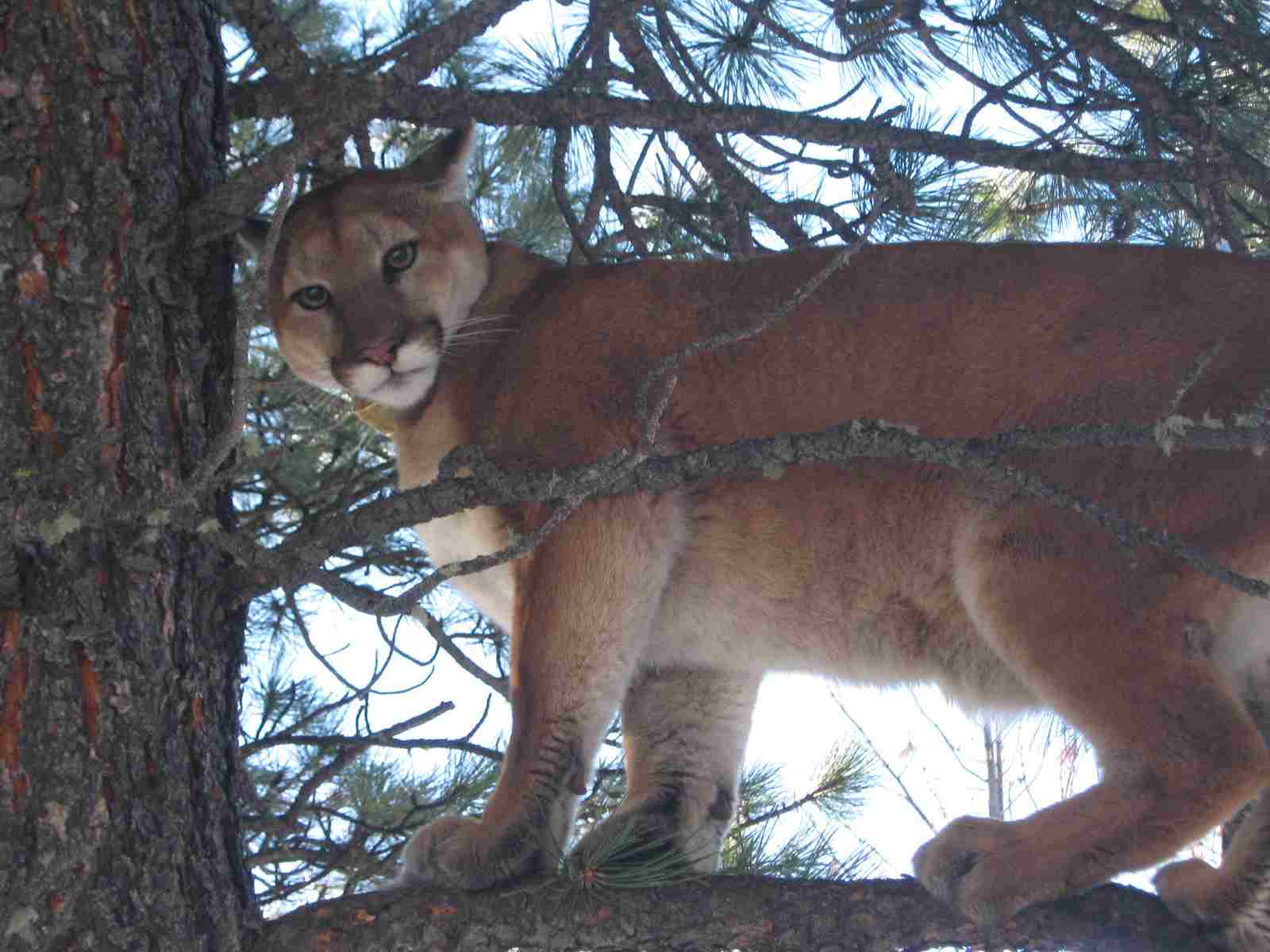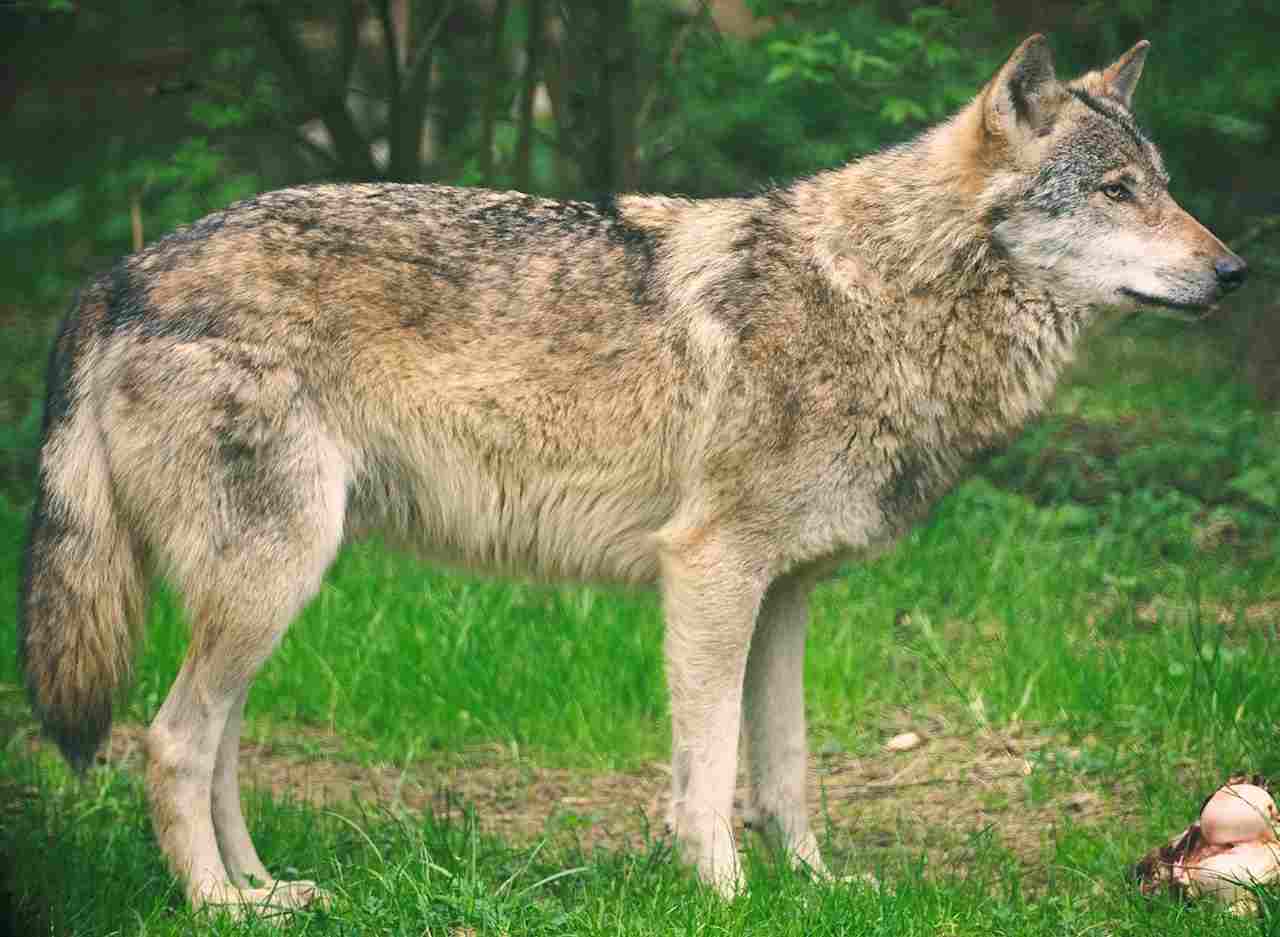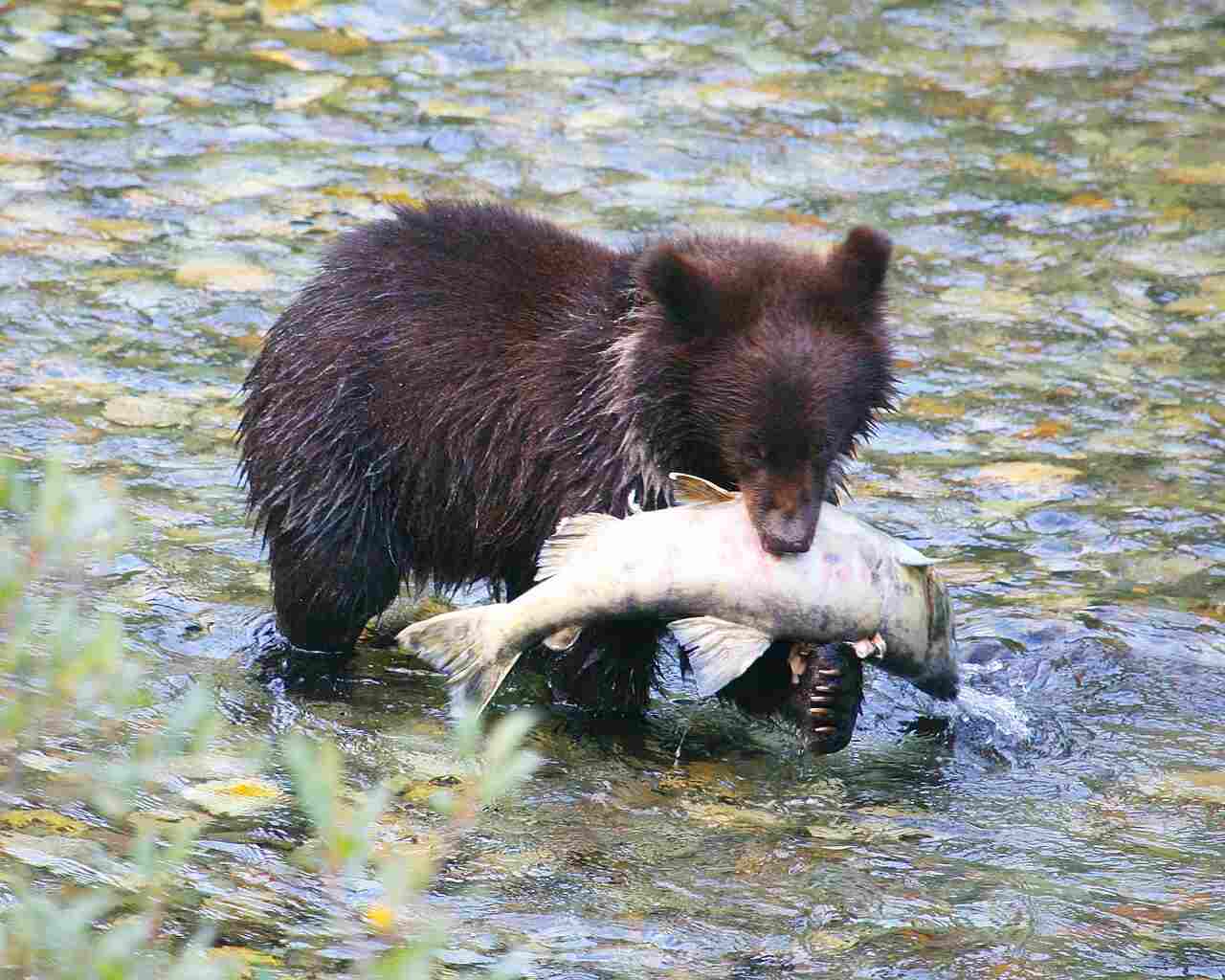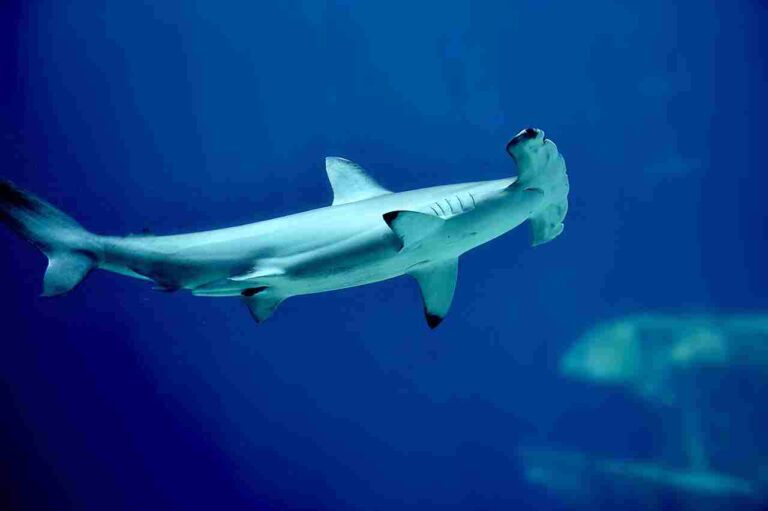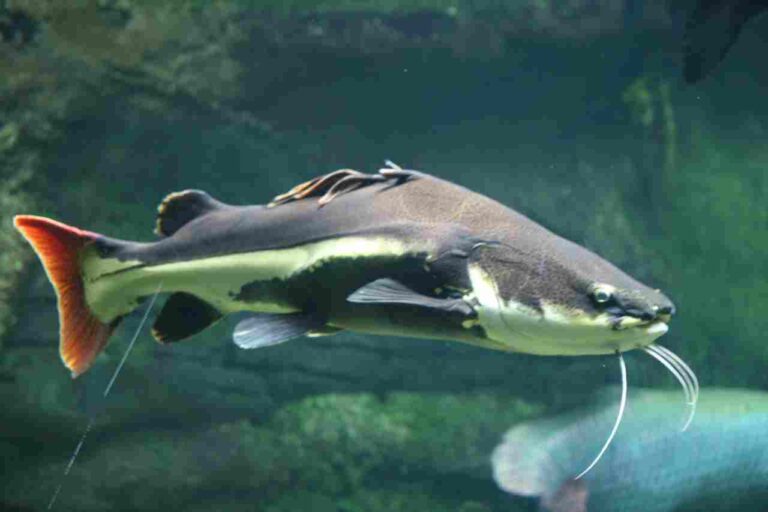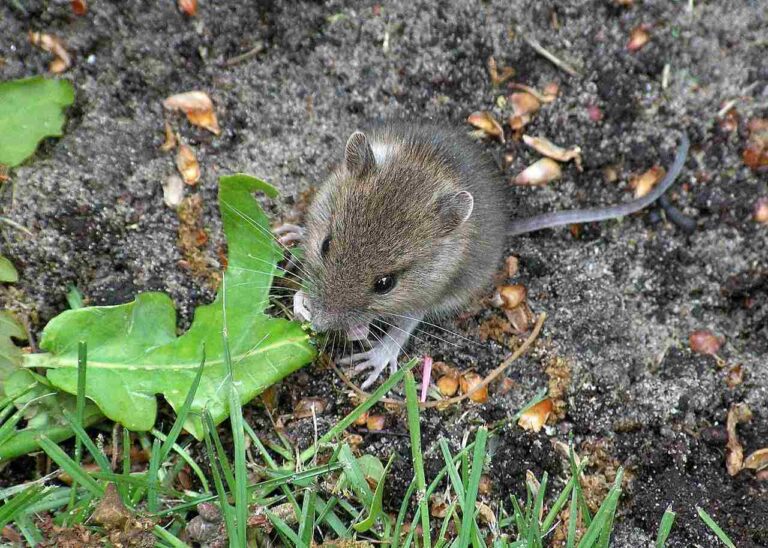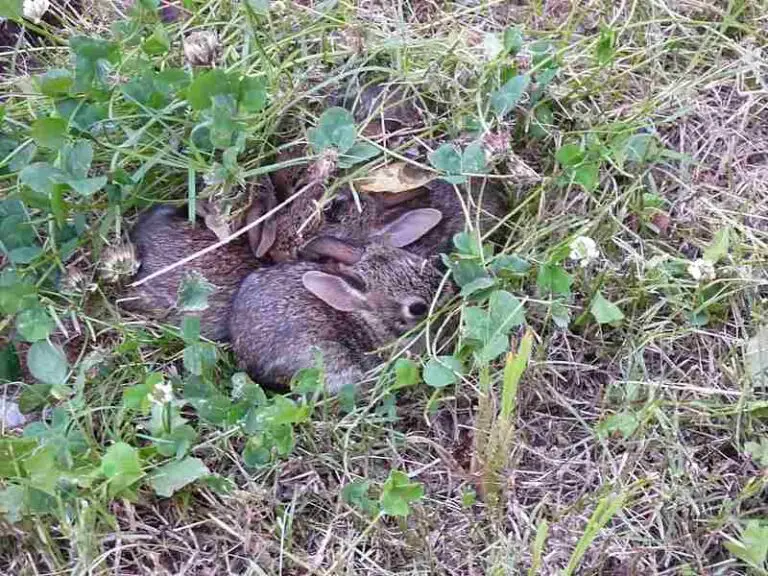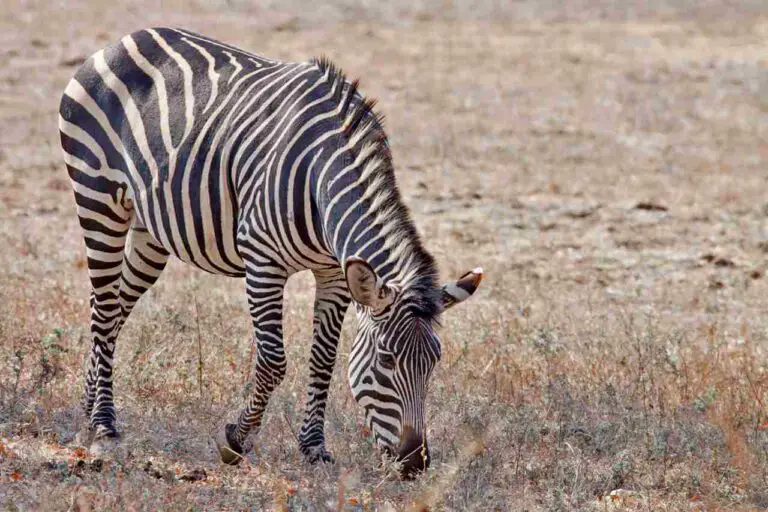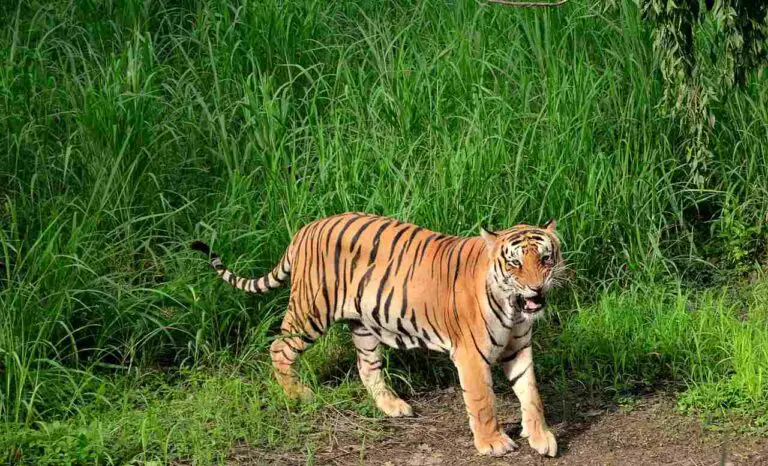Are Lions Omnivores? Assessing Dietary Habits of Lions
When it comes to their dietary habits, lions are not considered omnivores. Unlike omnivores, lions do not consume plant matter and rely solely on meat or animal biomass for their sustenance. Their diet mainly consists of animals such as wildebeests, zebras, and buffalos. Lions are apex predators and are not classified as primary consumers in the food chain.
Why a Lion is Not an Omnivore
1). Exclusive Animal Biomass Consumption
Lions are known for their exclusive consumption of animal biomass, which is a key characteristic of obligate carnivores. This means that their diet consists solely of meat, making them distinct from omnivores that have a more varied diet.
One reason why lions are not classified as omnivores is their specialized feeding behavior. Lions are apex predators, meaning they are at the top of the food chain and primarily feed on herbivores. Their hunting strategies and physical adaptations are specifically designed for capturing and consuming animal prey. Lions have sharp teeth and strong jaws that allow them to tear through the flesh and bones of their prey, further emphasizing their carnivorous nature.
Additionally, lions do not possess the adaptations necessary for consuming plant matter. Unlike omnivores, they lack the specialized digestive enzymes and gut structure required to efficiently break down and extract nutrients from plant material. Their digestive system is optimized for processing and digesting animal protein, further supporting their classification as obligate carnivores.
2). Lions are Not Highly Versatile or Opportunistic Feeders
Lions can be opportunistic to a degree, but they are not highly versatile or opportunistic feeders like omnivores. This is another reason why lions are not classified as omnivores. Unlike omnivores that have the ability to adapt their diet based on food availability, lions have a more limited range of food options.
Lions primarily rely on hunting and consuming animal prey. They have evolved to be specialized hunters, with their physical characteristics and hunting strategies specifically adapted for capturing and consuming herbivores. Lions have powerful muscles and sharp claws that enable them to chase down and overpower their prey. Their keen senses, such as sharp eyesight and acute hearing, also aid in their hunting success.
In contrast, omnivores have a wider range of food options and can consume both plant and animal matter. They have adaptations that allow them to digest and extract nutrients from a variety of food sources. For example, omnivores often have a more diverse set of teeth that can handle both plant material and meat. They also have a digestive system that is capable of breaking down and processing different types of food.
While lions may occasionally scavenge or consume plant material in small quantities, their diet is predominantly composed of animal biomass. This specialization in consuming animal prey, along with their lack of adaptations for plant-matter consumption, further supports their classification as obligate carnivores rather than omnivores.
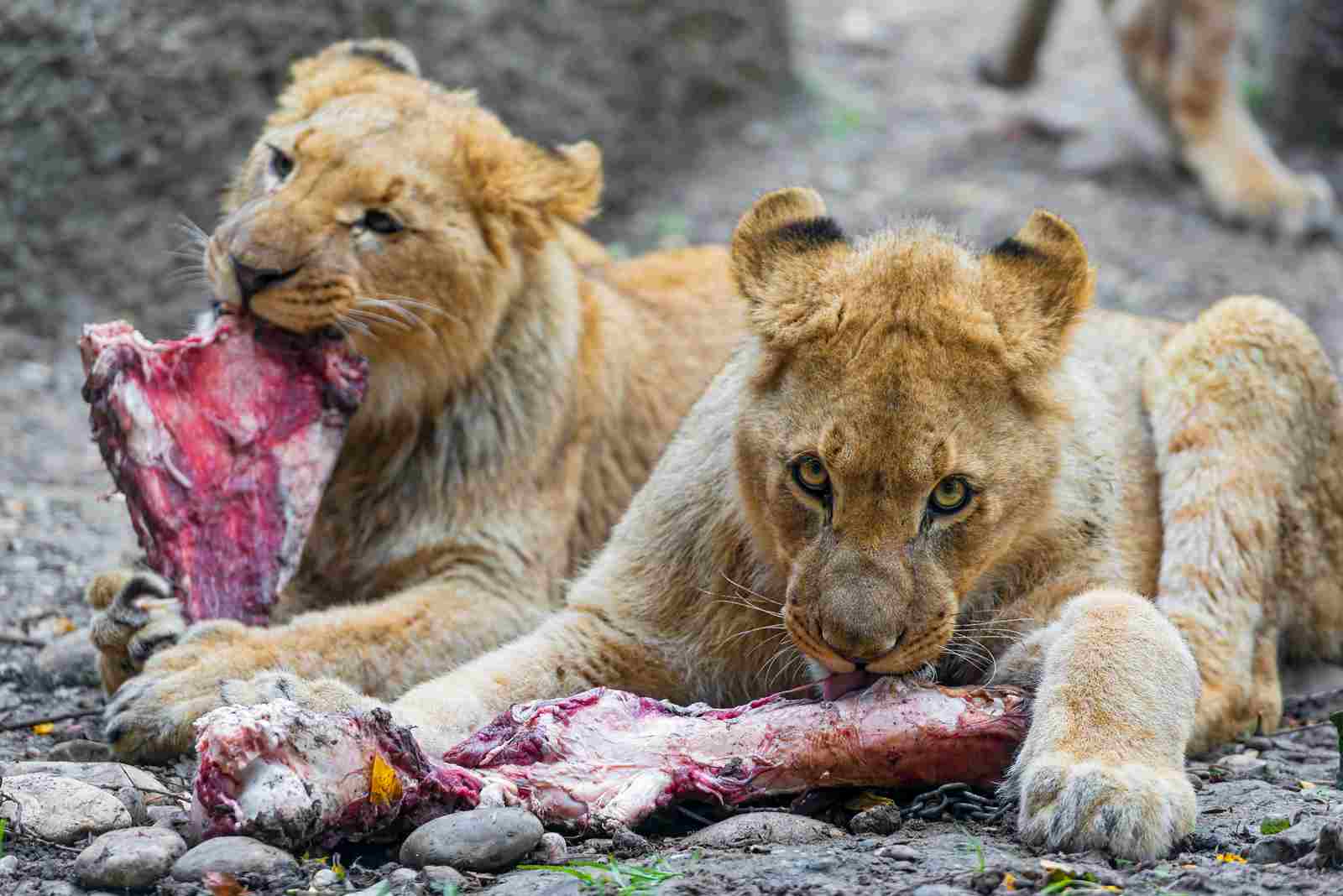
3). Lack of Adaptations for Plant-Matter Consumption
Lions lack the necessary adaptations for plant-matter consumption, which is a key reason why they are not classified as omnivores. Unlike herbivores, lions do not possess specialized dentition or a stomach digestive system that is capable of efficiently breaking down and extracting nutrients from plant material.
The dental structure of lions is designed for tearing and shearing meat, with sharp and pointed teeth that are ideal for gripping and slicing through flesh. This type of dentition is not well-suited for grinding and chewing plant matter, which requires flatter teeth for effective mastication. Additionally, lions do not possess the specialized enzymes and gut bacteria that herbivores have to aid in the digestion of cellulose, the main component of plant cell walls.
Furthermore, the digestive system of lions is optimized for processing animal protein. Their short digestive tract allows for rapid digestion and absorption of nutrients from meat, which is high in protein and fat. In contrast, herbivores have longer digestive tracts to facilitate the breakdown and fermentation of plant material, which is more difficult to digest due to its high fiber content.
These anatomical and physiological differences between lions and herbivores highlight the distinct dietary preferences and limitations of each group. Lions are highly specialized predators that have evolved to efficiently hunt and consume animal prey. Their lack of adaptations for plant-matter consumption further reinforces their classification as obligate carnivores rather than omnivores.
Is a Lion a Herbivore?
Contrary to popular belief, a lion is not a herbivore but rather a carnivore. Lions do not consume plant matter; their diet consists solely of animal flesh. They are apex predators, feeding on a variety of animals such as wildebeests, zebras, and buffalo. Lions are not equipped to digest or derive nutrients from plant material, as their digestive system is specialized for processing animal protein.
Lions possess sharp and pointed teeth that are designed for tearing and shearing meat. These teeth are ideal for gripping and slicing through flesh, but not for grinding and chewing plant matter. Unlike herbivores, lions lack the specialized dentition required for effective mastication of plant material. Their dental structure is a clear indication of their carnivorous nature.
In addition to their dental adaptations, lions also lack the necessary enzymes and gut bacteria that herbivores possess. Herbivores have evolved specialized digestive systems to aid in the breakdown and fermentation of plant material, particularly cellulose. Cellulose is the main component of plant cell walls and is difficult to digest without the proper adaptations. Lions, on the other hand, do not possess these adaptations, further reinforcing their classification as carnivores.
Furthermore, lions have a short digestive tract optimized for processing animal protein. This allows for rapid digestion and absorption of nutrients from meat, which is high in protein and fat. In contrast, herbivores have longer digestive tracts to facilitate the breakdown and fermentation of plant material, which is more challenging to digest due to its high fiber content.
It is important to note that lions are not classified as primary consumers in the food chain. Instead, they are secondary consumers, preying on herbivores. Herbivores serve as a vital source of food for lions, providing them with the necessary nutrients to survive and thrive. This relationship highlights the distinct roles and dietary preferences of different species within an ecosystem.
Why Lions are Not Herbivores?
1). They Do Not Feed On Plants
Lions are apex predators known for their carnivorous diet, which primarily consists of meat. Unlike herbivores that rely on plant matter for sustenance, lions do not feed on plants. Their diet is exclusively composed of animal biomass, making them obligate carnivores.
Lions are skilled hunters and rely on their strength, speed, and cooperative hunting strategies to capture and kill their prey. Their preferred targets are large herbivores such as zebras, wildebeests, and buffalo. These animals provide the necessary nutrients and energy that lions need to survive and thrive in their natural habitat.
While lions may occasionally scavenge on the remains of carcasses left behind by other predators, this behavior does not make them omnivores. Scavenging is simply a way for lions to take advantage of available resources when hunting is not successful. However, their primary source of nutrition still comes from consuming animal flesh.
The anatomy and physiology of lions further support their classification as carnivores. Their teeth are adapted for tearing and cutting meat, and their digestive system is designed to efficiently process and extract nutrients from animal protein. Lions lack the specialized adaptations seen in herbivores, such as complex digestive systems for breaking down plant matter or specialized teeth for grinding vegetation.
Drawing from the discussion so far, lions are not herbivores because they do not feed on plants. Their diet consists solely of animal biomass, and their physical characteristics and hunting behavior align with those of carnivores.
2). Lions are Not Classified a Primary Consumers in The Food Chain
Lions are not classified as primary consumers in the food chain, but rather as tertiary consumers. As apex predators, lions occupy the top of the food chain and play a crucial role in maintaining the balance of their ecosystems. This distinction further emphasizes that lions are not herbivores.
Primary consumers, also known as herbivores, are animals that directly feed on plants for their sustenance. They obtain energy by consuming vegetation, such as grasses, leaves, and fruits. Examples of primary consumers include zebras, wildebeests, and smaller species of antelopes. These herbivores serve as the primary food source for secondary consumers, which are typically carnivores.
Lions, on the other hand, are not classified as primary consumers because they do not feed directly on plants. Instead, they rely on consuming other animals for their nutritional needs. Lions are skilled hunters and primarily target large herbivores as their prey. By preying on herbivores, lions obtain the energy and nutrients they require to survive.
As tertiary consumers, lions are positioned at the top of the food chain. They consume secondary consumers, which are carnivores that feed on herbivores. This hierarchical structure highlights the vital role that lions play in regulating the population of herbivores and maintaining the overall health of their ecosystems.
3). Herbivores are Prey to Lions
Lions are formidable predators that primarily feed on other animals, making them carnivores rather than herbivores. While herbivores rely on plant matter for sustenance, lions have evolved to be skilled hunters, targeting and preying upon herbivores in their ecosystems. This predatory behavior is a key characteristic that distinguishes lions from herbivores.
As apex predators, lions play a crucial role in regulating the population of herbivores in their habitats. They are known to target large herbivores such as zebras, wildebeests, and antelopes. By preying on these herbivores, lions help control their numbers, preventing overgrazing and maintaining the balance of the ecosystem.
The hunting strategies employed by lions are well-adapted for capturing herbivores. They possess exceptional strength, speed, and agility, allowing them to chase down and overpower their prey. Lions often hunt in coordinated groups, known as prides, which increases their chances of a successful kill. This cooperative behavior enables them to take down larger herbivores that would be challenging for a solitary lion to tackle alone.
The diet of lions consists almost exclusively of animal flesh, which further reinforces their classification as carnivores. They lack the necessary adaptations, such as specialized teeth and digestive systems, to efficiently process and extract nutrients from plant matter. Lions have short, pointed teeth designed for tearing flesh and powerful jaws for crushing bones. These anatomical features are well-suited for their carnivorous lifestyle.
Are Lions Carnivores or Omnivores?
Lions are unequivocally classified as carnivores, as their diet consists exclusively of animal flesh. They are not omnivores because they do not exhibit the highly opportunistic feeding behavior typically associated with omnivorous species. Lions are obligate carnivores, meaning they rely solely on animal protein for their sustenance. This distinction is crucial in understanding the dietary habits and ecological role of lions in their respective habitats.
Unlike omnivores, lions do not consume plant matter as a significant part of their diet. Their digestive systems and teeth are not adapted for efficiently processing and extracting nutrients from plant material. Lions possess short, pointed teeth designed for tearing flesh and powerful jaws for crushing bones, which are well-suited for their carnivorous lifestyle. These anatomical features are indicative of their specialization as predators.
The dietary preferences of lions are evident in their hunting strategies and prey selection. Lions are skilled hunters that primarily target and prey upon herbivores in their ecosystems. They are known to focus on large herbivores such as zebras, wildebeests, and antelopes. By preying on these herbivores, lions play a vital role in regulating their populations and maintaining the balance of the ecosystem.
The absence of adaptations for plant matter consumption further reinforces the classification of lions as carnivores. Unlike omnivores, which possess versatile digestive systems capable of processing both animal and plant material, lions lack the necessary enzymes and gut morphology to efficiently digest and extract nutrients from plant matter. Their digestive systems are optimized for the digestion of animal protein, further emphasizing their carnivorous nature.
Is a Lion a Carnivore, Herbivore, or Omnivore?
When it comes to categorizing the dietary habits of lions, there is no doubt that they are classified as carnivores. Lions are apex predators that exclusively consume animal flesh as their primary source of nutrition. This distinction sets them apart from herbivores and omnivores, as their diet is solely focused on animal biomass.
Lions are not herbivores because they do not feed on plants as a significant part of their diet. Unlike herbivores, which rely on plant matter for sustenance, lions have evolved to be efficient hunters and predators. Their sharp, pointed teeth and powerful jaws are specifically adapted for tearing flesh and crushing bones, enabling them to capture and consume their prey effectively.
Similarly, lions are not omnivores because they do not exhibit the highly versatile and opportunistic feeding behavior typically associated with omnivorous species. Unlike omnivores, which have the ability to consume both plant and animal matter, lions lack the adaptations necessary for efficiently processing and extracting nutrients from plant material. Their digestive systems and teeth are specialized for the consumption of animal protein, further reinforcing their classification as carnivores.
In the food chain, lions are not classified as primary consumers, which are typically herbivores. Instead, lions occupy the role of secondary consumers, preying upon herbivores and maintaining the balance of the ecosystem. By targeting large herbivores such as zebras, wildebeests, and antelopes, lions play a crucial role in regulating the populations of these herbivores and preventing overgrazing.
The distinction between carnivores, herbivores, and omnivores is essential in understanding the ecological role of lions and their impact on their respective habitats. As carnivores, lions contribute to the top-down regulation of the food chain, exerting control over herbivore populations and influencing the dynamics of the ecosystem. Their specialized adaptations and hunting strategies reflect their evolutionary specialization as apex predators.
Conclusion
* In this article, we have explored the dietary habits of lions and assessed whether they can be classified as omnivores.
* We began by establishing that lions are not herbivores, as they do not feed on plants as a significant part of their diet. Their sharp teeth and powerful jaws are adapted for tearing flesh and crushing bones, making them efficient hunters and predators.
* Furthermore, we determined that lions are not omnivores due to their lack of adaptations for processing and extracting nutrients from plant material. Their digestive systems and teeth are specialized for the consumption of animal protein, reinforcing their classification as carnivores.
* Additionally, we discussed how lions are not classified as primary consumers in the food chain, but rather as secondary consumers. By preying upon herbivores, lions play a crucial role in regulating herbivore populations and maintaining the balance of the ecosystem.
FAQs
1). Can a Lion Eat Leaves?
No, a lion does not eat leaves.
Lions are primarily carnivores and their diet consists mainly of animal flesh. They are not known to eat leaves or any other plant matter as a significant part of their diet. Lions have evolved to be efficient hunters, with their sharp teeth and strong jaws adapted for tearing and consuming meat. Their digestive system is also designed to process and extract nutrients from animal protein.
2). Are Lions Carnivores?
Yes, lions are carnivores. Their diet primarily consists of animal flesh, making them obligate carnivores. Lions have evolved to be skilled hunters, with their sharp teeth and strong jaws adapted for tearing and consuming meat. They rely on their hunting abilities to capture and kill their prey, which typically includes large herbivores such as zebras, wildebeests, and buffalo.
Lions are apex predators in their ecosystems, meaning they have no natural predators and are at the top of the food chain. Their digestive system is specialized for processing and extracting nutrients from animal protein, further emphasizing their carnivorous nature. Lions’ hunting behavior and physical adaptations clearly demonstrate their classification as carnivores.
3). What Eats Lions?
Lions, as apex predators, have no natural predators in their ecosystems. However, they are not completely immune to being preyed upon. While lions are skilled hunters, they can still fall victim to other animals in certain circumstances.
One of the main threats to lions comes from scavengers such as hyenas and vultures. These opportunistic creatures often take advantage of a lion’s kill, stealing their prey or feeding on the remains after the lion has finished eating. Hyenas, with their powerful jaws and pack hunting behavior, can pose a significant threat to lions, especially when they outnumber them.
Vultures, on the other hand, are attracted to the scent of a fresh kill and can quickly gather in large numbers to feed on the carcass. Although they do not directly hunt lions, they are also capable of feeding on the remains of dead lions.
4). What Animal Eats Lions and Tigers?
Lions and tigers, both being apex predators, have few natural predators. However, they can still fall victim to scavengers in certain circumstances. Scavengers are opportunistic creatures that take advantage of a lion or tiger’s kill or feed on their remains.
One of the main scavengers that pose a threat to lions and tigers is the hyena. With their powerful jaws and pack hunting behavior, hyenas can outnumber and overpower these big cats, stealing their prey or feeding on the remains after they have finished eating.
Another scavenger that can feed on lions and tigers is the vulture. These birds are attracted to the scent of a fresh kill and can quickly gather in large numbers to feed on the carcass. While they do not directly hunt lions and tigers, they are capable of consuming the remains of these apex predators.
5). What does a Lion Eat?
Lions primarily feed on animal biomass from other consumers like herbivores. Their diet consists mainly of large ungulates such as zebras, wildebeests, and buffalo. These herbivores provide the necessary nutrients and energy for the lion’s survival. Lions are skilled hunters and rely on their strength, speed, and teamwork to bring down their prey.
They use their powerful jaws and sharp teeth to deliver a fatal bite to the neck or throat of their target. Once the prey is captured, lions will consume almost every part of the animal, including the surficial tissues, organs, and bones.
5). What Animals do Lions Eat?
Lions primarily eat herbivores, such as zebras, wildebeests, and buffalo. These animals provide a significant portion of the lion’s diet, as they are a rich source of nutrients and energy.
6). Do Lions Eat Humans?
While lions are primarily carnivores and their diet mainly consists of herbivores, there have been rare cases where lions have preyed on humans. However, it is important to note that these incidents are not typical behavior for lions.
In certain circumstances, such as when lions are injured, old, or unable to find their usual prey, they may resort to attacking humans. This behavior is more commonly observed in lions that have become habituated to human presence or have lost their natural fear of humans.
It is crucial to remember that these instances are exceptions rather than the norm. Lions do not actively seek out humans as a food source, and the vast majority of lions coexist peacefully with humans in their natural habitats. Conservation efforts and responsible wildlife management play a significant role in minimizing human-lion conflicts and ensuring the safety of both species.
7). Do Lions Eat Grass?
Contrary to popular belief, lions do not eat grass as a significant part of their diet. While lions are primarily carnivores, there have been rare instances where they have been observed consuming small amounts of grass. However, this behavior is not for nutritional purposes but rather to aid in digestion.
The consumption of grass by lions is known as “grass eating” or “grass grazing.” It is believed that lions may eat grass to induce vomiting, which helps them expel any indigestible material, such as fur or bones, from their stomachs. This behavior is commonly observed in lions after consuming a large meal or when they are experiencing digestive discomfort.
It is important to note that grass is not a substantial source of nutrition for lions. Their bodies are adapted to efficiently digest and derive energy from animal protein. Lions primarily rely on hunting and consuming herbivores to meet their dietary needs.
8). Do Lions Eat Other Lions?
Contrary to popular belief, lions do not typically eat other lions as a part of their natural behavior. Lions are social animals that live in prides, which consist of related females and their offspring, as well as a few dominant males. The members of a pride work together to hunt and defend their territory.
While there have been rare instances of lions killing and consuming other lions, these cases are usually associated with territorial disputes or the takeover of a pride by a new group of males. In such situations, the invading males may kill the cubs of the previous dominant males to establish their own lineage.
However, it is important to note that these instances are not common and do not represent the typical behavior of lions. Lions primarily hunt and consume herbivores, such as zebras and wildebeests, to meet their dietary needs.
9). How many kg of Meat does a Lion Eat Per Day?
The amount of meat a lion eats per day can range from few kilograms to as much as 15% of its body weight for adult lions. However, the exact quantity depends on various factors such as the lion’s gender, age, and species.
Male lions, being larger and more muscular, generally require more food than females. Adult male lions can consume up to 7 kilograms of meat per day, while adult females typically consume around 5 kilograms.
The age of the lion also plays a role in determining its daily meat intake. Growing cubs have higher energy requirements and may consume around 2 kilograms of meat per day. As they mature, their intake gradually increases.
Different lion species may have slightly different dietary needs. For example, the African lion, the most common lion species, primarily feeds on large herbivores like zebras and wildebeests. On the other hand, the Asiatic lion, found in India’s Gir Forest, has a diet that includes smaller prey such as deer and antelope.
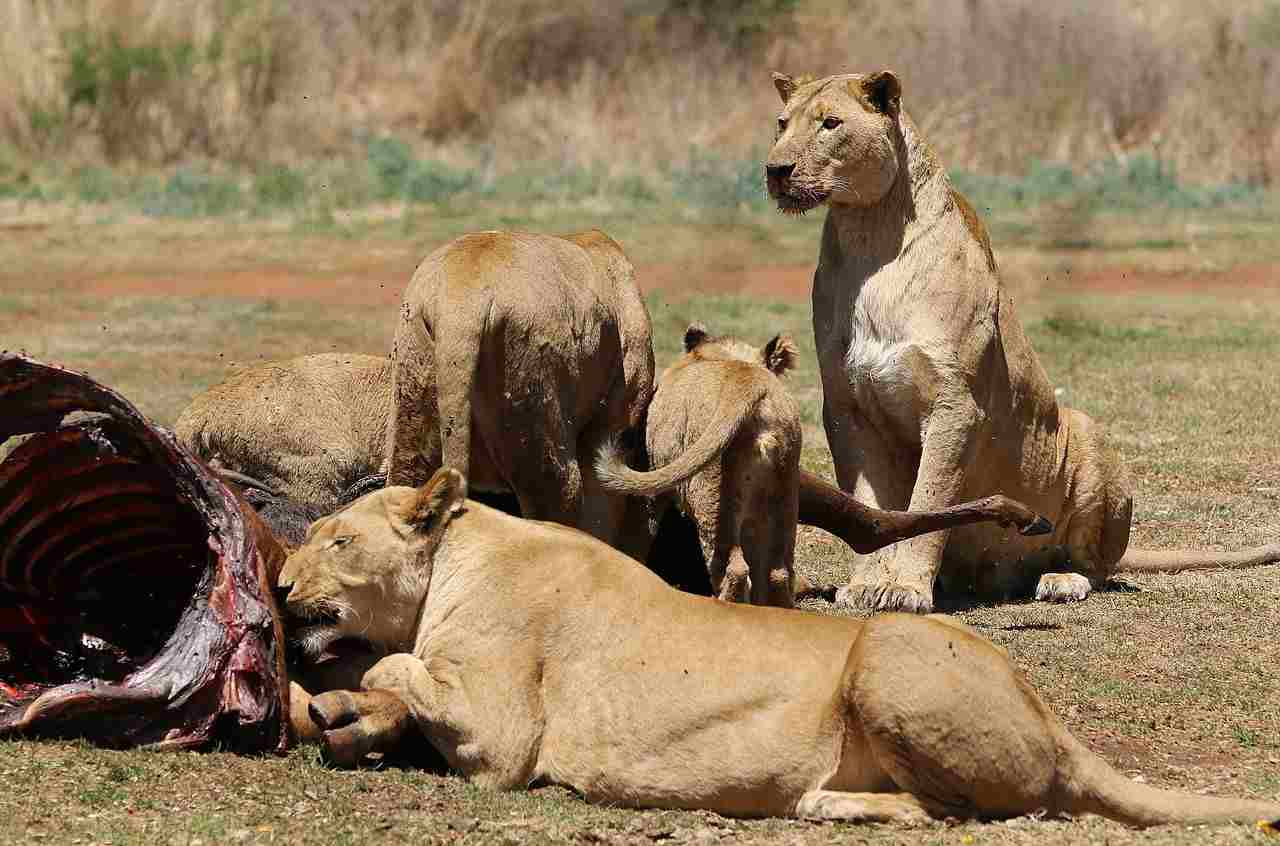
10). What do Lions Eat in the Zoo?
Lions in the zoo are usually fed with a diet that closely resembles their natural prey in the wild. This typically consists of raw meat, such as beef or chicken, which is provided to them on a regular basis. Zookeepers ensure that the lions receive a balanced diet that meets their nutritional needs. In addition to meat, some zoos also provide bones for the lions to chew on, which helps to keep their teeth and jaws strong.
11). Do Lions Eat Grass When Hungry?
Lions are primarily carnivores, meaning their diet consists mainly of meat. However, there are instances where lions may eat grass, especially when they are experiencing digestive issues or when they are lacking certain nutrients. This behavior is known as “grass eating” or “grazing.”
When lions consume grass, it acts as a natural laxative, helping to facilitate the movement of food through their digestive system. It can also help them expel any indigestible material, such as fur or bones, that may have accumulated in their stomachs.
Additionally, grass contains essential nutrients, such as fiber, that lions may need to maintain a healthy digestive system. By consuming grass, lions can supplement their diet and ensure they are getting all the necessary nutrients.
However, it’s important to note that grass is not a significant part of a lion’s diet. They primarily rely on hunting and consuming meat to meet their nutritional needs. Grass eating is more of a supplementary behavior that occurs under specific circumstances.
12). Why is a Lion a Carnivore?
A lion is a carnivore because it exclusively feeds on animal biomass or meat. Their bodies are adapted for hunting and consuming other animals. Lions have sharp teeth and strong jaws that allow them to tear through the flesh and bones of their prey. They also have powerful muscles and keen senses, such as sharp eyesight and acute hearing, which help them locate and capture their prey.
Additionally, lions have a short digestive system that is designed to process and extract nutrients from meat efficiently. This specialization as a carnivore ensures that lions obtain the necessary energy and nutrients they need to survive and thrive in their natural habitat.
13). Is A Lion A Omnivore or a Predator?
A lion is not an omnivore but a predator. As an apex predator, lions are at the top of the food chain in their ecosystem. They primarily feed on other animals, specifically herbivores such as zebras, wildebeests, and gazelles. Lions have evolved to be highly efficient hunters, using their strength, speed, and teamwork to bring down their prey.
With their sharp teeth and powerful jaws, lions are able to tear through the flesh and bones of their prey. They have keen senses, including sharp eyesight and acute hearing, which help them locate and stalk their targets. Once they have captured their prey, lions consume the meat, leaving behind very little waste.
14). Why are Lions Omnivores?
Lions are not omnivores. They are actually classified as carnivores. Lions have evolved to be highly specialized predators, with their physical characteristics and hunting strategies perfectly suited for capturing and consuming other animals.
Lions possess sharp teeth and powerful jaws that enable them to tear through the flesh and bones of their prey. Their keen senses, including sharp eyesight and acute hearing, help them locate and stalk their targets with precision. Once they have successfully captured their prey, lions consume the meat, leaving behind very little waste.
15). Is a Lion a Herbivore, Yes or No?
Contrary to popular belief, lions are not herbivores. Lions are classified as carnivores, meaning they primarily consume meat. Their diet consists mainly of large ungulates such as zebras, wildebeests, and buffalo. Lions have evolved to be highly efficient predators, with their physical characteristics and hunting strategies perfectly adapted for capturing and consuming other animals.
Lions possess sharp teeth and powerful jaws that enable them to tear through the flesh and bones of their prey. Their keen senses, including sharp eyesight and acute hearing, help them locate and stalk their targets with precision. Once they have successfully captured their prey, lions consume the meat, leaving behind very little waste.
While lions are not herbivores, there have been rare instances where they have been observed consuming small amounts of vegetation. This behavior is believed to be a result of either nutritional deficiencies or an attempt to aid digestion. However, these instances are the exception rather than the norm, and the majority of a lion’s diet consists of meat.
16). What Does a Lion Eat?
Lions primarily eat large ungulates such as zebras, wildebeests, and buffalo. These herbivores provide the necessary animal biomass for the lion’s diet. Lions are skilled hunters and have evolved to be efficient predators, with their physical characteristics and hunting strategies perfectly adapted for capturing and consuming other animals.
Their sharp teeth and powerful jaws allow them to tear through the flesh and bones of their prey. Lions rely on their keen senses, including sharp eyesight and acute hearing, to locate and stalk their targets with precision.
17). Why Don’t Lions Eat Carnivores?
Lions primarily feed on large herbivores due to several factors. Firstly, large herbivores provide a higher calorific value compared to carnivores. Lions need a substantial amount of energy to sustain their large bodies and active lifestyle, and herbivores offer a more efficient source of nutrition.
Another reason why lions don’t typically prey on carnivores is the risk of injury. Carnivores, such as hyenas or other big cats, are more likely to defend themselves during an encounter with a lion. Lions rely on their physical strength and agility for hunting, and any injury sustained during a confrontation with a carnivore could hinder their ability to hunt in the future. Therefore, it is a behavioral adaptation for lions to avoid unnecessary risks and focus on prey that poses less danger.
Furthermore, the number of carnivores in an ecosystem is generally much lower compared to herbivores. This scarcity makes it less practical for lions to solely rely on carnivores as a food source. Lions have evolved to be opportunistic hunters, targeting the most abundant and easily accessible prey available to them.
